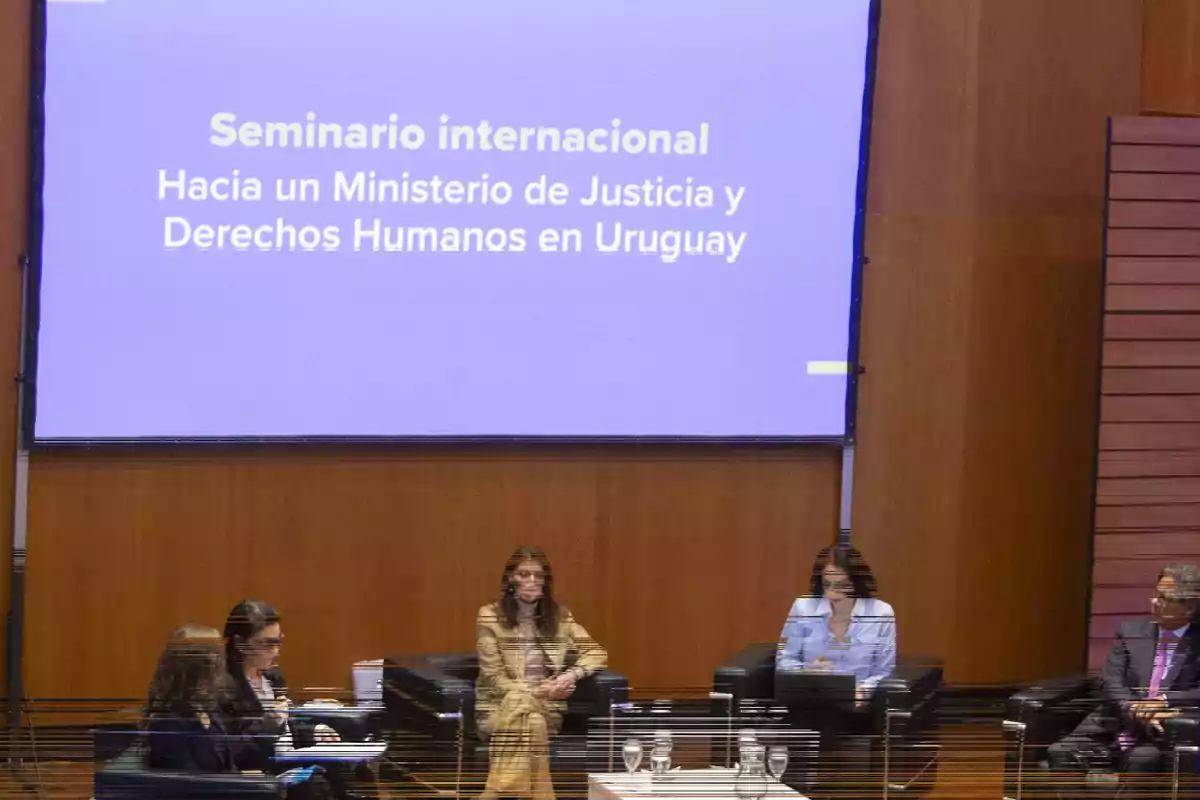
Ministry of Justice and Human Rights or Ministry of Truth?
The globalist imposition to lose the last vestige of independent justice
With the support of the UN and the endorsement of all parties, Uruguay is on track to create an ideological ministry that threatens to transform justice into a tool for political and cultural control.
On June 25, the President of the Republic, Yamandú Orsi, delivered another shameful speech, stammering and redundant, in which he reaffirmed his commitment to the creation of the new globalist ministry.
With the support of the United Nations Development Programme (UNDP), the international seminar toward a Ministry of Justice and Human Rights in Uruguay was held in the auditorium of the annex building to the Executive Tower.
The creation of the new State secretariat was not promoted only by Frente Amplio: all the parties of the Republican Coalition proposed the inauguration of a new layer of parasitic bureaucracy at the service of Agenda 2030.
The State no longer fits in Uruguay
This is a terrible increase in public spending. With this addition, the size of the State will be larger, forcing Uruguayans to support 15 ministries. Once again, as usual, the cost of innovations falls on the taxpayers, who will have to finance a new exclusively globalist political, administrative, and operational structure.
With a population of just 3.4 million inhabitants, Uruguay currently keeps 14 ministries and a state structure that employs more than 297,000 public officials. This is one of the highest rates in Latin America: approximately one official for every 11 people, of whom around 75,853 work directly in the State Secretariats.
The last State secretariat created was the Ministry of Environment, established on July 9, 2020, during Luis Lacalle Pou's government through the Urgent Consideration Law No. 19,889.
Its origin was directly linked to commitments made during the electoral campaign to the international organization Fridays for Future, founded by the terrorist environmentalist and Hamas activist Greta Thunberg, to meet the goals set by the United Nations Agenda 2030.
The perfect disguise for global control
The real danger is not only budgetary or bureaucratic. It is, above all, political and cultural. With the creation of the Ministry of Justice and Human Rights, the aim is to impose from the State a closed and transnational moral vision, which doesn't arise from citizen debate or democratic sovereignty.
Far from guaranteeing more justice, this ministry could mark the beginning of a new form of institutionalized domination, in which rights and principles are defined from above, without plural discussion or effective oversight.

This is a serious step toward the loss of national sovereignty, through the direct integration of our state structures into the global bureaucratic framework.
Instead of improving justice, the new ministry consolidates a power architecture that operates according to external interests, not necessarily coinciding with the will of the Uruguayan people.
You may also be interested in this article on the curious aesthetic effect of social democracy in urban space, where it is analyzed how political ideas also shape the physical landscape of cities.
The Ministry of Truth arrives in Uruguay
As if it were a scene taken from an Orwellian dystopia, the new Ministry of Justice and Human Rights eerily resembles the Ministry of Truth from George Orwell's novel 1984.
The creation of this ministry implies the reinterpretation of justice from political power, the suppression of dissent under a moralizing discourse, and the consolidation of a single mandatory narrative.
This is not about human rights, but about controlling language and, consequently, thought. It is about manipulating definitions, their application, and scope, displacing national sovereignty in favor of regulations imposed by international organizations that no one chose.
Justice besieged by the Executive
According to the Constitution, the Judiciary must be an independent branch of the State. But if we start from the —observable— premise that this independence is eroded, the creation of this ministry could dangerously deepen the institutional imbalance.

In this scenario, a ministry with broad powers in matters of justice and human rights runs the risk of becoming a tool for political interference, under a technical or legal guise.
You may also be interested in this article on Mujica's contradictions during the 1970s, a story that reveals the nuances of official memory.
Prisons, gender, and reparation: all under one ministry
The new ministry could act as an informal intermediary or channel of pressure on judges and prosecutors, especially if it is assigned administrative or budgetary functions over the judicial system.
In addition, aligned with the global agenda, this ministry would have the capacity to impose a single official vision on complex issues such as gender, diversity, childhood, or historical reparation.
Far from guaranteeing justice, this structure threatens to transform the state apparatus into an organ of ideological doctrine, where individual rights will no longer be defended but administered.
As if that were not enough, this new machinery will be financed by the Uruguayan taxpayers themselves, who will pay for the State to tell them what they must think, what they can say, and whom they must obey.
More posts: